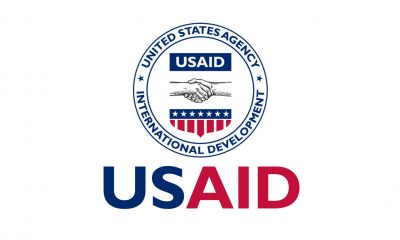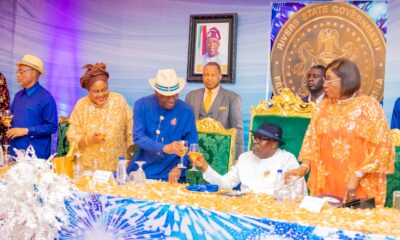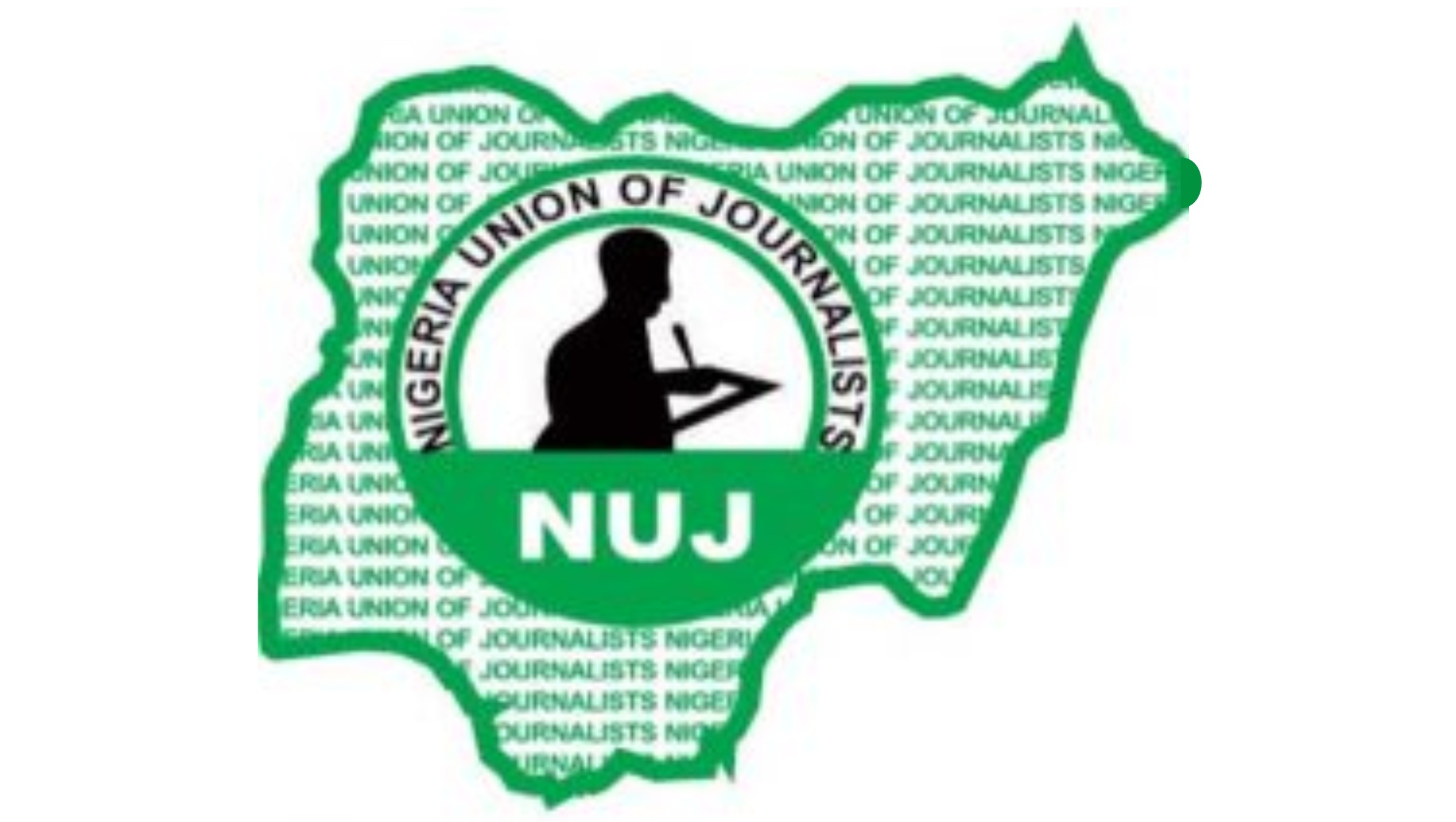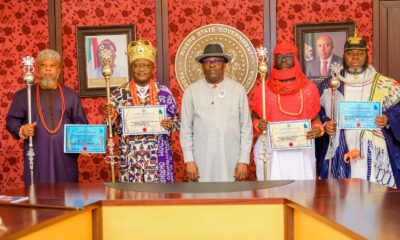Maritime
Aide Blames Firms, Vessel Operators For Maritime Insecurity
The desire by oil
companies, fishing trawlers and other vessel operators to cut corners and engage in economic malpractices is responsible for the worsening state of insecurity in Nigeria’s maritime domain, the presidency has said.
Speaking at a seminar tagged: “Preventing Terrorism and Insurgency in Nigeria’s Maritime Domain,” organised by the Maritime Correspondents’ Organisation of Nigeria (MARCON), a Senior Special Assistant to the President on Maritime Affairs, Mr. Leke Oyewole, said companies operating in the nation’s waters were guilty of illegal acts which encourage violence in the Maritime sector.
Oyewole said, oil companies operating in the country often pollute the waters and neglect their host communities stressing that youths express their dissatisfaction by attacking the companies and their infrastructure in the maritime domain. He said fishing trawlers carry cash from illegal trade on the high sea, while tanker vessel operators engage in illegal oil trade, thereby attracting the pirates to attack them.
Oyewole, however, admitted that weak maritime laws and lack of enforcement of the laws had largely contributed to the growing trend of piracy and other illegal acts in the nation’s maritime sector. He assured that government was working to create a synergy among agencies in the maritime sector and correct administrative lapses identified with a view to tackling insecurity in the nation’s waters. He pledged tough measures by government in fighting piracy, terrorism and other acts of violence in the maritime sector, saying that they would seize vessels involved in illegal acts and make adequate laws.
He revealed that a bill to strengthen the fight against piracy and other illegal acts in the nation’s waters sponsored by the Nigerian Maritime Administration and Safety Agency (NIMASA) was currently before the national assembly. For the part, the President of Crisis Control Foundation, Dr. Kingsley Ezeatakwulu-Osakwe, stressed that negligence in the nation’s security framework and the unwillingness of the people to cooperate with government were responsible for the high level of insecurity in the country and the maritime sector.
“The citizens are so much exploited, denied their rights that they become afraid of government security agencies. The increasing insecurity in Nigeria is elf-imposed and inherited by the present administration. It is clear that the present tackling methodology is not completely adequate because certain ingredients are still not added to the operational system of the entire security structure”, he said.
To address insecurity in the maritime domain and in the country, he called for an end to corruption, the development of an effective judiciary and good citizen-government relationship. He also urged security agencies in the country to be proactive in their approach to tackling terrorism and insurgency.
In his own presentation, Rector of the Certified Institute of Shipping of Nigeria, Dr. Alex Okwuashi, called for imposition of life sentence for piracy and other terrorist acts in the nation’s maritime sector, while the government must also mobilise the people to actively participate in the battle against terrorists and other agents of violence.
However, the Permanent Secretary of the Ministry of Transport, Nebolisa Emodi has assured that the cooperation among the Nigerian Maritime Administration and Safety Agency (NIMASA), the Nigerian Navy and the private sector was capable of addressing security challenges in the nation’s maritime domain.
Also speaking, Dr. Boniface Aniebonam and Eugene Nweke of the National Association of Government Approved Freight Forwarders (NAGAFF) urged action on the different laws and policy decisions taken to strengthen the nation’s maritime sector.
For his part, Mallam Isah Suwade of the Nigerian Ports Authority (NPA) stressed that his organisation had continued to develop adequate maritime infrastructure and sponsor manpower development as a way of tackling insecurity in the maritime sector.
He, however, regretted that inter-agency decisions reached in the past were not properly implemented.
Earlier, Aniemu Ismail, president of the Maritime Correspondents’ Organisation of Nigeria had stressed that unless strategic steps were taken to tackle insecurity in the maritime domain, the hope of reaping the benefits of Nigeria’s maritime potential would not materialise.
Maritime
Waterways Safety: NIWA Wants Partnership With Govs

The Managing Director of National Inland Waterways Authority (NIWA), Mr. Bola Oyebamiji, has called for increased collaboration between the federal agency and state governments to enhance the safety and security of inland waterways transportation.
Speaking at a one-day consultative forum on safety and insecurities on inland waterways, organized by the Nigeria Transportation Commissioners’ Forum in Ilorin, Oyebamiji emphasized the critical role that safety and security play in fostering a thriving water transportation system.
The forum, themed “Prevalent Safety, Security Hazards and Practices in Inland Waterways: Passenger Transport Safety in Ilorin, Kwara State”, sought to address the pressing issues facing the inland waterways sector.
Oyebamiji acknowledged the ongoing efforts by NIWA to improve safety, such as the recent unveiling of the transportation code for public use, the inauguration of several operational assets including survey boats, gunboats, water ambulances, and a passenger ferry.
He also noted that safety campaigns have been launched across all operational bases, targeting local communities in their native languages.
The NIWA boss stated the support from the National Assembly, including the ongoing discussions on establishing coastal guards and the attention safety and security on inland waterways have received from the House Committee on Inland Waterways.
In his closing remarks, Oyebamiji appealed to the Commissioners for Transportation across relevant states to collaborate with NIWA in areas such as training, safety campaigns, infrastructure development, and financial empowerment.
He stressed that while the challenges are significant, they are surmountable through collective action.
Maritime
Coastal Guard Bill’ll Unlock Marine Blue Economy Potential -FG

The Federal Government has conveyed its support for the establishment of the National Coast Guard.
The Government also commended the proponents of the bill for having the hindsight to initiate a course of action that, when passed, will be the catalyst needed in unlocking the nation’s maritime potential.
In a statement by the Head of Press, and Public Relations for the ministry, Muhammad Tahir Zakari, Minister of Marine and Blue Economy, Adegboyega Oyetola, was reported to have made this known at the National Assembly complex at the 1-Day Public Hearing on National Coast Guard Bill (NCG).
The statement stated that the bill when passed, will guarantee maritime safety, sustainable marine resource development and enhance economic growth.
Highlighting the major need for the National Coast Guard, the Minister identified: Maritime safety; Environmental protection through enforcing environmental regulations and conservation of marine ecosystems; and Enforcement of civil maritime laws to uphold laws governing civil maritime activities and enforce fishing regulations while preventing illegal exploitation.
It also include search and rescue to maritime emergencies and also conduct timely search and rescue operations.
He cited a 2009 publication by the African Centre for Strategic Studies, which noted that 15 of the 21 independent maritime nations in sub-Saharan Africa have dedicated coast guards and identify themselves as such.
Despite this, none of these nations have Nigeria’s population or the extent of its inland waterways and coastline.
While acknowledging the significant role of the Nigerian Navy in safeguarding the Nigerian maritime space following the collaborative effort with the Ministry of Marine and Blue Economy in the Deep Blue Project, which has shown great results with zero piracy in Nigeria’s territorial water in the last three years.
He, however, stressed the need for the National Coast Guard to complement the efforts of the Nigerian Navy in playing a critical role in preventing accidents, crime, and other threats to maritime activities
“A vast coastline of 850 km, the equivalent of 10,000 km in two ways. It is also a place of rich and diverse economic sources.
“While these opportunities are promising, they also present challenges such as pollution, overfishing, and unsustainable use of marine resources. The proposed National Coast Guard is equipped to tackle these issues”, he stated.
He urged the Senate and the National Assembly to lend their full support to the bill, noting that, “Nigeria Coast Guard will act as a vital complement to the Navy, of fostering a safe and sustainable maritime environment”.
He appealed for the establishment of a flexible, adaptive implementation strategy that would evolve into a midwife for the bill to succeed, while urging those with reservations to see the pressing need of the institution.
Earlier during the hearing, the President of the Nigerian Senate, Godswill Akpabio, commended members of the Committee on Marine and Transport for their unwavering dedication in piloting the initiative and advocating for the establishment of the National Coast Guard Bill.
Akpabio, represented by Sen. Akintunde Yunus, said the essence of the bill was to make critical decisions that will guarantee the safety of the nation’s waterways and protect the marine resources.
He stated that “the establishment of the National Coast Guard is not merely a legislative formality, but a dire necessity”.
Speaking also, the Chairman, Senate Committee on Marine and Transport, Sen. Sanni Eshinlokun, said the Bill was first read in the Senate on the 3rd of October while the Senate at its plenary deliberated on the General Principles of the Bill.
Senator Eshinlokun said, “The Bill was read for the second time and referred to the Senate Committee on Marine Transport for further legislative action.
Maritime
Private Sector Should Drive Blue Economy -Bello

Former Executive Secretary of the Nigerian Shippers’ Council (NSC), Barr. Hassan Bello, has charged the Federal Government not to designate any of its agencies as the lead agency to drive the blue economy if it actually wants Nigeria to make progress in the sector.
Bello, who made this call in his remarks at the 10th anniversary, lecture and awards of the Primetime Reporters in Lagos, midweek, advised the Federal Government to avoid the mistake made during the Cabotage era when it designated an agency as lead agency and the rest was now history.
He said for the sector to succeed, it required everyone’s contribution, urging the Minister to allow the private sector to drive the blue economy.
According to him, “Two things which we must be very careful about is to make.mistake, like we did with cabotage. If we remember carefully, Cabotage was coastal and Inland shipping, but that inland shipping was not emphasized.
“It was just for supply of oil and gas to the mother vessel, we couldn’t trade as we were doing from Asaba to Baro in Niger State, or carry cement or even petroleum products. So, we cannot restrict that to customs.
“Secondly, don’t give the Blue Economy to an agency to say it is the lead agency because everybody must have contributions to the Blue Economy. As we want to do, we have seen agencies struggling to have seminars on Blue Economy, it’s not even a government thing.
“Allow the private sector to take over this blue economy, don’t create fantastic departments and overload into the private sector. This is what is our problem.
“When we had the Cabotage, it was a NIMASA thing and when you talk about Cabotage, no! don’t go there, what is your own with Cabotage? So, Cabotage was colonized, the Blue Economy should not be colonized. We should have the ramification of that Blue Economy to make sure that everything trickles down”.
He however, noted that there had been a lot of progress by the various organs of government even before the designation of the Blue Economy Ministry saying, “Blue Economy has always been there just as we had the red economy, which is characterized by China’s quest for export for state directed economy.
“We even have the grey economy, which is that which is informal. We have the green economy and all shades of economy. So, it’s not new that we have the Blue Economy, what has been the call by stakeholders is for us to have a ministry that will cater for transportation and transportation is a cardinal or even the paramount part of the Blue Economy.
“I know we have sustainable use of ocean resources and many other things, but when you talk about the Blue Economy, the central point is the use of ocean and the inland waterways and other resources for diversification of our economy as the Convener has said”.
“We have to be conscious, concerted and even calculated to make sure that it works for us. It’s not just fancy thing that there’s a ministry for blue economy. There must be active participation of stakeholders and the involvement of the private sector to harness the resources and not anything fancy or pretentious. The government must involve the private sector.
By: Stories by Nkpemenyie Mcdominic, Lagos
-

 World22 hours ago
World22 hours agoPope Francis urges global dialogue to prevent world war
-
Rivers22 hours ago
JONAPWD Elections: Commissioner Inaugurates 5-Man Committee
-
Politics24 hours ago
When Women Unite To Pray For SIM
-

 Business22 hours ago
Business22 hours agoUSAID Re-emphasizes Agricultural Collaboration With Nigeria
-

 Featured22 hours ago
Featured22 hours agoWe’ve Only One House Of Assembly Led By Oko-Jumbo, Fubara Clarifies …Signs Into Law N1.188trn Rivers 2025 Budget
-
Business22 hours ago
Agency Partners Foreign Varsity On Climate-Smart Agriculture Advancement
-

 Nation23 hours ago
Nation23 hours agoNUJ backs proposed strike by Lagos-owned media workers
-

 Niger Delta21 hours ago
Niger Delta21 hours agoFouchee Celebrates Asari’s Recognition

